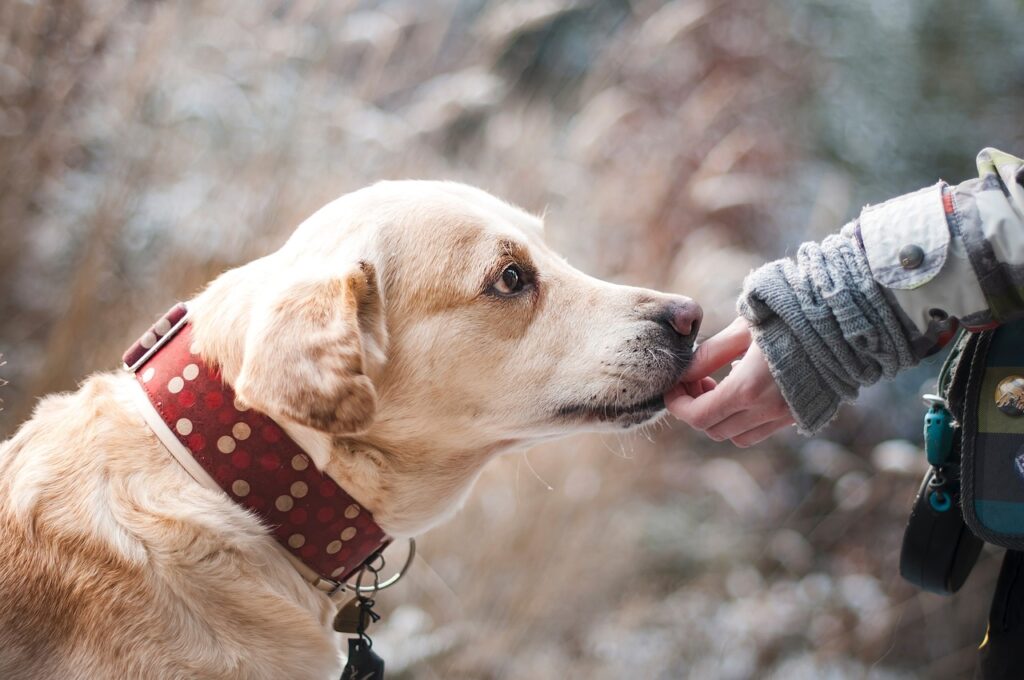Can Dogs Eat Applesauce? — Yes, They can
Applesauce is generally safe for dogs to eat in moderation. It can provide some nutritional benefits and serve as a tasty treat for your furry friend. However, there are a few things to consider when feeding applesauce to dogs.
Can Puppies Eat Applesauce?
Yes, puppies can eat applesauce, but it should only be given in small quantities. Their digestive systems are still developing, and too much applesauce can cause stomach upset or diarrhea. Introduce it gradually and monitor their reaction.
Things to consider when feeding applesauce to puppies?
When feeding applesauce to puppies, it’s important to consider their age, size, and overall health. Start with small amounts and observe any changes in their digestion. If there are any negative reactions, discontinue feeding them applesauce.
Nutritional Benefits of Applesauce for Dogs — Why Applesauce is good for Dogs? /Why Dogs can have Applesauce
1. Fiber
Applesauce contains fiber, which aids in digestion and can help regulate bowel movements in dogs. It can be beneficial for dogs with constipation or gastrointestinal issues.
2. Vitamins
Applesauce is a good source of vitamins such as vitamin C, vitamin A, and vitamin E. These vitamins contribute to a healthy immune system, skin, and coat for your furry friend.
3. Antioxidants
Applesauce contains antioxidants, including flavonoids, which help fight inflammation and promote overall well-being in dogs.
4. Hydration
Applesauce has a high water content, which can help keep your dog hydrated. This is especially beneficial during hot weather or if your dog is not drinking enough water.
5. Low in Fat
Applesauce is low in fat, making it a suitable option for dogs on a low-fat diet or those prone to obesity.
Potential Allergies: Can Dogs Be Allergic to Applesauce?
Dogs can be allergic to certain components of applesauce, such as preservatives or added sugars. It’s important to monitor your dog for any signs of allergies or adverse reactions after consuming applesauce.
Symptoms of Applesauce Allergies in Dogs
- Hives or skin rash
- Itching and scratching
- Swelling, especially around the face, ears, or throat
- Vomiting or diarrhea
- Difficulty breathing
What to Do If Your Dog Shows Symptoms?
- If your dog shows any symptoms of an allergic reaction, discontinue feeding them applesauce immediately.
- Contact your veterinarian for further guidance and potential treatment options.
- Consider keeping a record of the ingredients in the applesauce to help identify the specific allergen.
Recommended Amount: How Much Applesauce Can a Dog Consume?
The recommended amount of applesauce for dogs depends on their size, age, and overall health. As a general guideline, a small dog can have around 1–2 teaspoons of applesauce, while a larger dog can have up to 1–2 tablespoons. Always introduce new foods gradually and monitor your dog’s response.
Things to Consider When Feeding Applesauce to Dogs
When feeding applesauce to dogs, consider the following:
- Choose unsweetened, plain applesauce without any added sugars or artificial sweeteners, as these can be harmful to dogs.
- Avoid applesauce with preservatives or additives that may be harmful to your furry friend.
- Monitor your dog’s reaction to applesauce, especially if it’s their first time consuming it.
- Consult with your veterinarian if your dog has any existing health conditions or dietary restrictions.
How to Feed Applesauce to Dogs: A Quick Guide
Feeding your dog applesauce can be a simple and enjoyable experience. Here’s a quick guide:
Classic Applesauce Treat
To create a classic applesauce dog treat, simply spoon out a small amount of unsweetened, plain applesauce into their bowl. Allow them to lick it as a tasty and refreshing treat.
Applesauce Frozen Delight
For a frozen delight, mix unsweetened applesauce with a small amount of water and pour it into an ice cube tray. Once frozen, offer your dog a chilled applesauce cube as a refreshing summer treat.
Homemade Applesauce Dog Biscuits
You can also make homemade applesauce dog biscuits by combining unsweetened applesauce, whole wheat flour, and a little bit of water. Roll out the dough, cut it into biscuit shapes, and bake them until golden brown.
Conclusion
In conclusion, dogs can have applesauce in moderation as long as it is plain, unsweetened, and free from any harmful additives. It offers some nutritional benefits, including fiber, vitamins, antioxidants, and hydration. However, it’s essential to monitor your dog for any signs of allergies or digestive issues and adjust the portion size according to their size and overall health. Always consult with your veterinarian for personalized advice regarding your dog’s diet.






